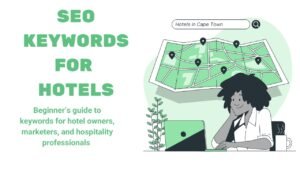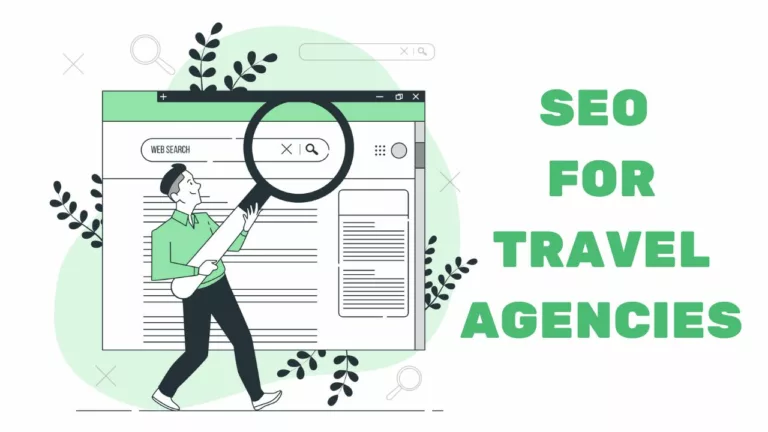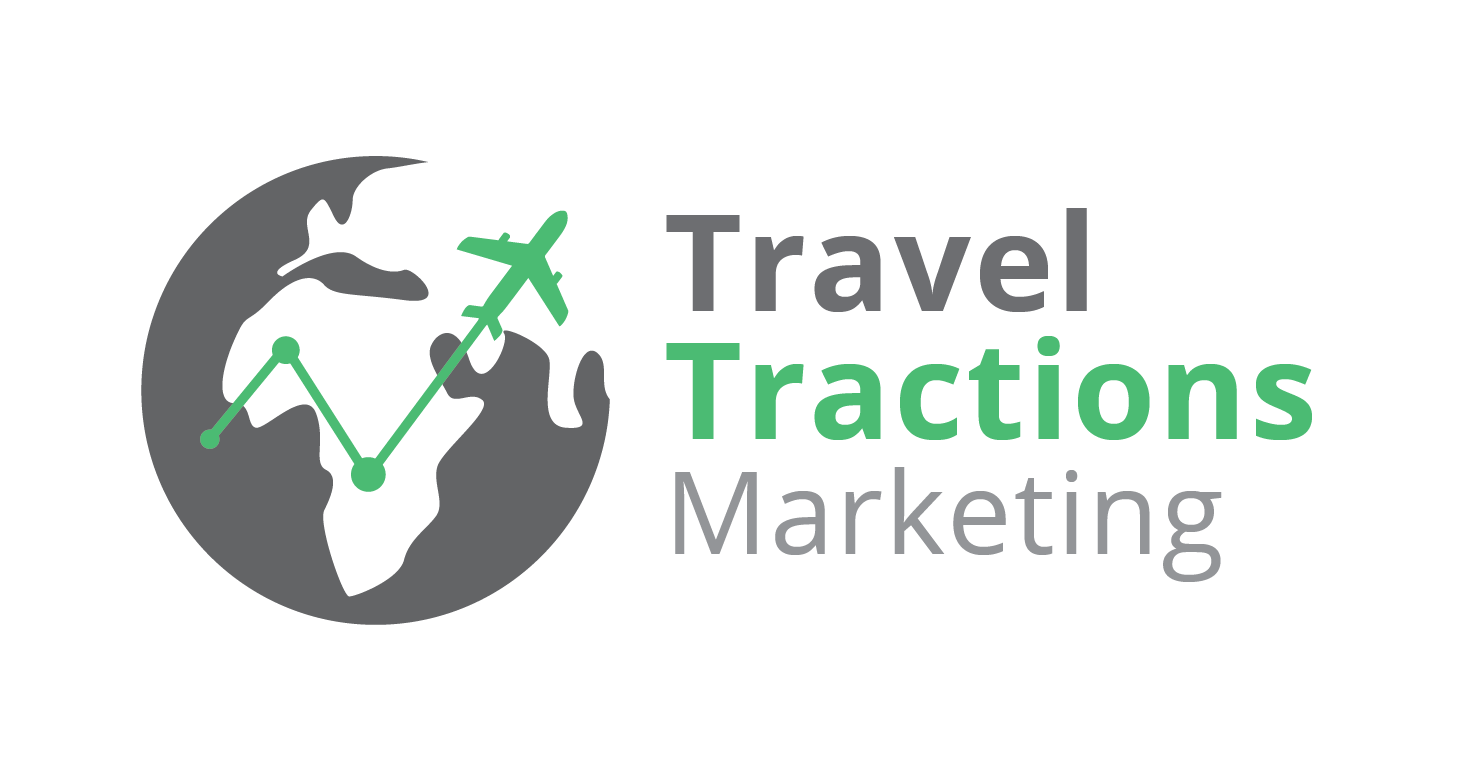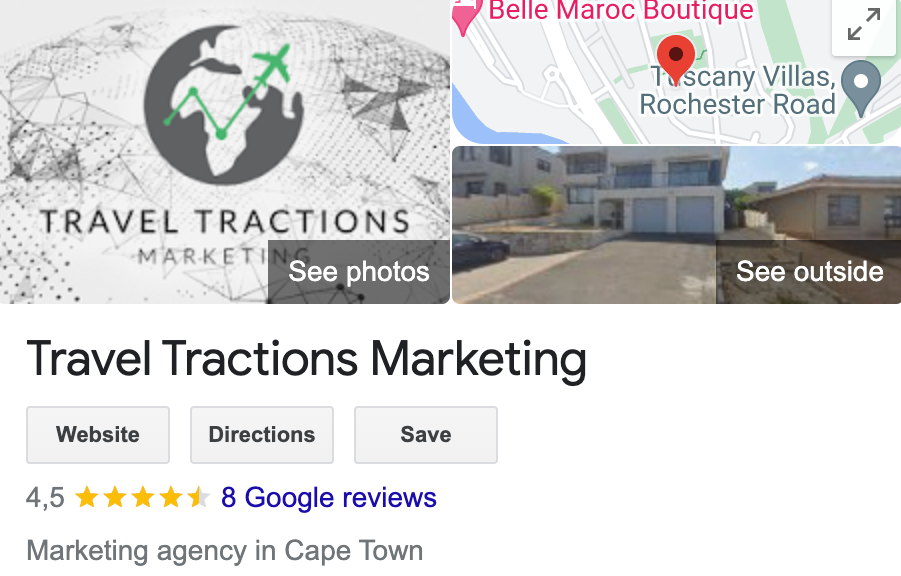

SEO for Travel Agency: The Best SEO tips for Your Tourism Website
If you’re a travel agency with a website that’s struggling to get traffic and, in turn, customers, the issue might be your SEO. There are dozens of travel agencies vying for the same customers you are after, and the most successful ones have an effective SEO strategy.
Today, people’s experiences with businesses or individuals mostly start with or at least involve the internet and search engines in one way or the other. If your website isn’t properly optimised, your chances of being one of the first few names people see when they search are slim-to-none.
The answer to getting your travel agency in the eyes of millions? SEO for travel websites.
Search engine optimization is a concept that’s been used by millions of websites in and out of travel to bolster their visibility and increase traffic.
When done right, the same can be done for your website.
Why is SEO for Travel Agencies Important?
This is especially true for players in the travel industry who rely mostly on the internet to get results. Tourism SEO is a must-do for anyone who wants their website to be seen by billions of potential customers who browse the internet daily.
By optimising your website for search engines, you’ll prove the value of your content to these search engines. In turn, they’ll reward you by positioning your website higher up on the search engine result pages (SERPs).
This leads to the acquisition of more customers, the growth of your brand, and ultimately success.
Why is a high ranking on SERPs important? According to Google, the world’s largest search engine, 70% of all organic clicks go to pages that are found on the first page. This means that if you don’t appear on the first page, you’ll lose 70% of traffic, even if you’re 11th.
Furthermore, SEO is more cost-effective than the second-best alternative for generating traffic to your website: PPC. SEO is all organic, you just need to optimise your website for search engines and you can get to the top without paying these search engines.
On the other hand, PPC gets you traffic relative to the money you spend, which can be a large amount.
Obviously, SEO does have costs you need to account for but your traffic figures won’t immediately freeze when you stop doing SEO. In comparison, when you pause paid ads, the traffic comes to an immediate standstill.
How to Do Travel Agency SEO
Now that you know the importance of travel website SEO let’s look at how to do SEO effectively. There are many factors that can improve SEO performance, but you don’t have to tackle them alone.
On-Page Travel SEO
On-page SEO refers to optimising the website itself to improve its ranking on search engines. There are many small parts that form the machine that is SEO, including the following.
Keyword Research
Keywords are arguably the most important part of SEO as they’re a signal to Google. They let Google’s crawlers know what your website is about and what keywords should trigger your appearance in the SERPs.
To find the most effective keywords for your website, you must do keyword research. It will help you find keywords that you aren’t ranking for, and you can then optimise your website by including these keywords in relevant pages.
And if you’re wondering where to begin, don’t worry — we can help there too. You can find keywords for travel and tourism sites using the following tools:
- SEMRush
- Ubersuggest
- Moz
- Ahrefs
- KWFinder
- Google Keyword Planner
Tip: If you’re unsure how to do keyword research, you can learn all about it from our course. Sign up now to get your hands on the course as soon as it is released.
Once you’ve found the keywords you want to go after, you can then start implementing them into existing pages or new pages to make the most of your findings.
When looking for keywords, it’s always best to look for high-volume keywords that aren’t hotly contested by major industry players. These are often long tail keywords, which are less competitive than short tail keywords.
For example, the results for “Bali travel packages” are more competitive than “Bali travel packages for couples”. So go after specific long-tail keywords as you are more likely to rank AND your traffic will be far more targeted. It’s a win-win!
Landing Pages
Any SEO-friendly website should have dedicated landing pages for its different products or services. Without a landing page, it can be difficult for your site visitors to navigate their way to whatever they’re actually looking for. As a result, they will just leave your site, and you will have lost a potential customer.
A landing page is uber important for travel agencies who offer different packages, different destinations, and the like. When the visitor lands on the relevant page, they’ll be happy, as that means they won’t have to hop from page to page to find what they’re looking for.
In relation to a landing page, it is a good idea to include a travel blog as part of your marketing strategy. This is a great way to build topical authority through internal links and offer more value to website visitors. Not only that, but you also get a new avenue of traffic that you wouldn’t have received previously.
For example, a solo traveller who planned their trip themselves wouldn’t need Bali packages, but they would be happy to read a “Bali itinerary”.
Technical SEO
In addition to the above, there are technical factors affecting travel SEO that can’t be overlooked. These determine how visitors interact with your website, in turn signalling the value of your pages to search engines.
You can best identify bad technical search engine optimization by looking at your bounce rate on Google Analytics.
Mobile-Friendliness
Having a mobile-friendly website is key to the success of any website. Traffic from mobile devices makes up about 53% of internet traffic, meaning you’d be losing over half of your audience without a mobile-friendly site.
Use Google’s free mobile-friendly test to see whether your website isn’t optimised for handheld devices.
Loading Speed
Another factor that makes up technical SEO is the loading speed of your website. A travel website that takes too long to load will lose visitors quickly. And by “long”, we mean anything longer than 15 seconds.
Google’s Page Speed Tool is a great way to check on website loading speed.
In addition to the above, sitemaps, correct canonicalization, pleasing images and videos, and proper configuration of Google Webmaster Tools are key to travel SEO efforts.
Off-Page Travel Agency SEO
Just like on-page methods can be used to improve the SEO of travel sites, so can off-page processes. Off-page SEO refers to any action taken outside your travel website to improve its ranking on Google search results.
These bits on SEO for travel agents also apply to travel bloggers and other travel businesses with a website.
Link-building
The most common form of off-page SEO is link building. This is a process where websites link back to your pages and website, thus signalling to search engines and visitors that your travel website provides value. This will also boost your site’s perceived authority in Google’s eyes, earning you trust and more traffic.
Your goal here should be to earn quality backlinks from websites that have a higher authority than your own site. Also, ensure that the website linking back to yours is relevant and fits naturally. You don’t want links from websites about dog food, for instance, rather, look for websites in the travel niche that can provide you with a link.
Guest Posting
Guest posting refers to the submission of content to someone else’s website to provide their own audience with valuable information. They work similarly to link building as they get you in front of a new audience and signal that you’re an authority on the topic.
A travel company, regardless of whether they blog or not, can use guest posts to get targeted traffic back to relevant pages.
A successful guest post requires precise research into the site you’re writing for so you connect naturally to its audience.
Social Media
While social media isn’t the first thing that comes to mind when people talk about SEO, it’s important. Platforms like Instagram, Facebook, Twitter, Reddit, and the like have billions of users who regularly log into these platforms. These are users who may find your travel website content valuable.
Not having social media presence means your website is losing out on valuable organic traffic. After all, it has become a sort of search engine as people ask and answer questions frequently on these platforms.
That isn’t to say that this is an actual ranking factor for Google, but it can help improve your overall travel website visibility. Also, travel is a visual niche so visitors may want to see what your site looks like visually.
How Social Media Affects SEO
Social media is most effective at showing your authority. Having links from these platforms is a great way to have your website appear legit and authoritative for Google’s EAT, which is a massive ranking factor.
Active social media pages are a good way to connect with other players in the travel industry for backlinks or guest posts.
Local SEO
If you have a brick-and-mortar travel business, local SEO is incredibly important for improving the performance of your travel website. It’s been reported that a considerable amount of online searches are looking for local information.
The most important part of improving the online presence of a local business is getting listed on Google My Business. Getting listed on GMB is a great way to ensure your website shows up when someone in your location makes a search or if someone searches about your location.
Here’s an example of what this could look like for your own travel agency:
There’s a host of things to do to get your website listed on GMB, including the following:
- Create a GMB account and verify your location.
- Complete your profile with accurate information.
- Add your local address to your homepage.
- Optimise your headings, descriptions, and the like to relay your location.
- Ensure that the information on your website, GMB, and social media are the same.
Obviously, that is just a small part of a long list of steps involved in making an SEO-optimized GMB profile that will appear on Google maps.
Final Thoughts on Travel Search Engine Optimization
Travel blogs, agents, and other travel agencies can make use of these SEO tips to improve their website performance. When you make use of these best SEO practices, you’ll be able to propel your site to new heights.
If it all sounds too daunting or demanding, you don’t have to do it all on your own. Get in touch with us; we offer a number of travel SEO services for different players in the travel industry.
We’re a digital marketing agency that can do on-page SEO optimization as well as assist with off-page SEO. We’re eagerly waiting to help you!














